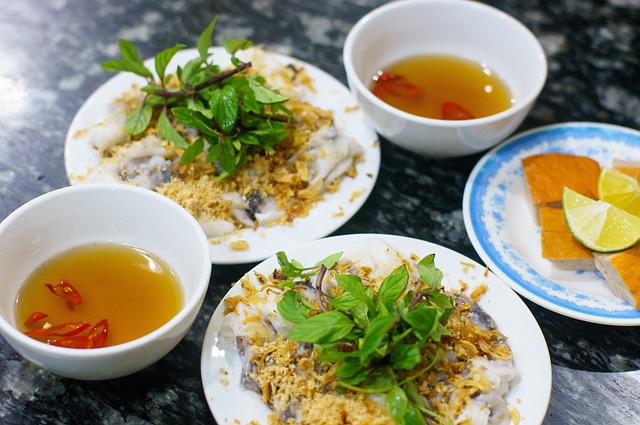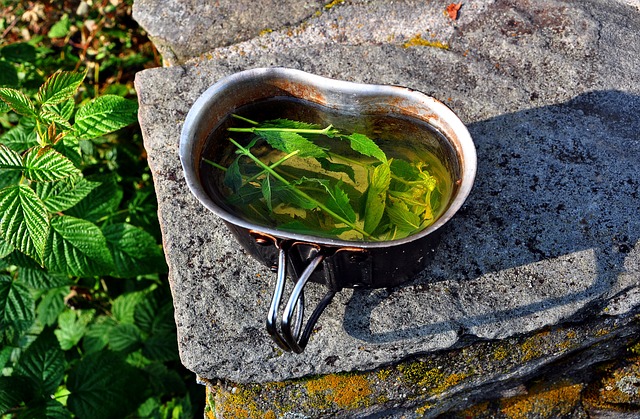
Local cuisine, also known as regional or traditional cuisine, refers to the unique culinary practices, ingredients, and dishes that have developed within a specific geographical area or community. It is the embodiment of a region’s cultural identity and heritage, reflecting the traditions, history, and values of its people.
Food tours, on the other hand, are immersive travel experiences that revolve around exploring the local gastronomic delights of a destination. These tours go beyond merely sampling food; they delve into the stories behind the dishes, the passion of the chefs, and the nuances of regional culinary techniques.
Food tours have gained immense popularity among travelers seeking authentic and enriching experiences. As we journey through a destination’s culinary landscape, we uncover a deeper understanding of its culture, traditions, and way of life. Food is a universal language that fosters connections and bridges cultural gaps. By engaging in food tours, travelers can connect with locals, learn about their customs, and appreciate the values embedded in their cuisine. This shared experience fosters cultural exchange, promotes tolerance, and cultivates respect for diverse societies.

This article aims to explore the fascinating world of food tours and their role in unraveling the culinary wonders of a destination. We will delve into the concept of food tourism, the impact of local cuisine on cultural identity, and the numerous benefits of engaging in food tours.
Evolution and Popularity of Food Tourism
The concept of food tourism has roots in the tradition of culinary pilgrimages, where people traveled long distances to taste renowned dishes or partake in unique culinary events. Over the years, the focus shifted from seeking a specific food item to embracing the entirety of a region’s cuisine.
The rise of social media and travel sharing platforms has also contributed to the popularity of food tourism. Travelers now share their mouthwatering culinary experiences, inspiring others to embark on similar adventures. As a result, food tourism has become a thriving industry, attracting foodies, cultural enthusiasts, and curious travelers from all corners of the globe.
Different Types of Food Tours
Food tours come in various forms, catering to diverse interests and preferences. Some tours concentrate on street food, allowing travelers to indulge in local delicacies from food stalls and carts. Other tours focus on fine dining experiences, providing a taste of the region’s haute cuisine. Additionally, there are cooking classes, where participants learn to prepare traditional dishes under the guidance of skilled local chefs.
Culinary walking tours are popular in cities and towns, guiding participants through historic neighborhoods while making stops at eateries along the way. For those seeking a more immersive experience, there are multi-day food tours that venture into different regions, exploring the culinary diversity of a country.
The Impact of Local Cuisine on Cultural Identity
Connection between Food and Culture
Food is an integral part of a community’s cultural fabric. It reflects historical influences, environmental conditions, agricultural practices, and the creative spirit of its people. The ingredients used, the cooking methods employed, and the social customs surrounding meals all contribute to the intricate tapestry of a region’s identity.

Food serves as a means of passing down traditions from one generation to another, preserving the cultural heritage of a community. Through recipes and cooking techniques handed down over centuries, local cuisine becomes a vessel that carries the stories and wisdom of the past.
Role of Local Cuisine in Preserving Traditions
As globalization paves the way for homogenization, local cuisine acts as a powerful safeguard for preserving cultural uniqueness. By celebrating and supporting regional dishes, communities can retain their distinct identities amidst the tide of mass-produced and standardized foods.
Moreover, local cuisine can act as a form of resistance to cultural assimilation. When people embrace and cherish their traditional dishes, they demonstrate a pride in their heritage, reinforcing a sense of belonging and unity within their community.
Cultural Significance of Iconic Dishes
Every destination has its iconic dishes, which hold immense cultural significance. These dishes often have fascinating stories behind them, tracing their origins back to historical events or legends. Iconic dishes become symbols of a region, drawing travelers in search of a taste of the local culture.
For instance, Italy’s pasta dishes, such as spaghetti carbonara and fettuccine alfredo, are not merely delicious but are also emblematic of Italian culinary excellence. In Mexico, the complex flavors of mole sauce represent a centuries-old tradition rooted in indigenous and Spanish influences.
Iconic dishes have a way of evoking nostalgia and invoking a sense of pride among locals, making them an essential aspect of any food tour experience.
Benefits of Engaging in Food Tours
-
Culinary Education and Learning
Food tours offer participants an unparalleled opportunity for culinary education. Travelers can learn about the ingredients, cooking techniques, and cultural influences that shape each dish. Moreover, local chefs and vendors often share their knowledge, sharing the secrets that make their food unique.
Engaging with the local food scene can expand one’s culinary horizons, introducing new flavors and combinations that may be entirely different from one’s home cuisine. This educational aspect of food tours enriches the overall travel experience, as participants return home with a deeper understanding of the world’s diverse culinary traditions.
2. Support for Local Communities and Small Businesses
Food tours contribute to the local economy by supporting small-scale food vendors, family-owned restaurants, and local markets. The income generated from food tourism aids in sustaining traditional food practices and allows these establishments to thrive in the face of competition from larger commercial enterprises.
By patronizing these local businesses, food tourists play an active role in preserving the authenticity of the destination’s cuisine and culture. Moreover, supporting local food producers and farmers fosters a sustainable and resilient food ecosystem.
3. Enhanced Travel Experience and Authenticity
One of the most significant benefits of food tours is the authentic travel experience they provide. Rather than staying confined to tourist hotspots, participants venture into neighborhoods frequented by locals, enabling them to witness the true essence of the destination.
Interacting with locals at eateries and markets fosters a sense of camaraderie and creates a more immersive and genuine experience. Travelers can embrace the culture of the region by engaging in the rituals and customs surrounding mealtimes.
Food tours offer an intimate glimpse into the soul of a destination, leaving participants with lasting memories and a genuine connection to the places they visit.
How to Choose the Perfect Food Tour
Researching Food Tour Operators
When selecting a food tour, thorough research is crucial. Look for established and reputable food tour operators with positive reviews and a track record of satisfied customers. Online travel forums and review websites can provide valuable insights into the experiences of previous participants.
Reading Reviews and Testimonials
Testimonials and reviews from past participants can offer valuable information about the quality of the food tour, the variety of dishes offered, and the expertise of the guides. Pay attention to feedback regarding the authenticity of the experience, as well as the level of cultural insights shared during the tour.
Considering Dietary Preferences and Restrictions
Before booking a food tour, inform the tour operator about any dietary restrictions or preferences you may have. This will ensure that the tour can accommodate your needs, allowing you to fully enjoy the experience without any concerns about food allergies or dietary restrictions.
Best Food Tours Around the World
Food Tours in Europe
-
Exploring Italian Culinary Delights in Rome
Rome, the eternal city, is a gastronomic paradise for food enthusiasts. Food tours in Rome offer an array of culinary delights, from mouthwatering pasta dishes like Cacio e Pepe to iconic Roman pizza. Stroll through charming neighborhoods and taste the rich flavors of Italian cuisine while learning about the historical significance of each dish.
-
Savoring the Flavors of Parisian Cuisine in France
Paris, the city of love, also boasts a rich culinary heritage. Food tours in Paris take participants on a delightful journey through artisanal bakeries, exquisite cheese shops, and traditional brasseries. Experience the art of pairing wine with cheese and indulge in classic French pastries like croissants and macarons.
-
Indulging in Spanish Tapas in Barcelona
Barcelona’s vibrant food scene offers an abundance of tapas bars and markets to explore. Food tours in Barcelona immerse travelers in the world of Spanish tapas, showcasing the diverse flavors of the region. Savor patatas bravas, jamón ibérico, and fresh seafood while basking in the lively atmosphere of the city’s culinary hotspots.
Food Tours in Asia
-
Street Food Extravaganza in Bangkok, Thailand
Bangkok is renowned for its street food culture, offering a mouthwatering array of dishes that tantalize the taste buds. Food tours in Bangkok introduce participants to the world of Thai street food, from the aromatic spices of Tom Yum Goong to the savory goodness of Pad Thai. Explore bustling markets and taste the best of Thai cuisine while experiencing the vibrant street life of the city.
-
Gastronomic Journey through Tokyo, Japan
Tokyo’s food scene is a seamless blend of tradition and innovation. Food tours in Tokyo offer an insight into the art of sushi-making, the delicacy of tempura, and the exquisite flavors of kaiseki cuisine. From Michelin-starred restaurants to humble izakayas, Tokyo’s diverse culinary landscape promises an unforgettable gastronomic adventure.
Conclusively, embarking on a food tour is not merely about indulging in delectable dishes but also about immersing oneself in the heart of a destination. Local cuisine and food tours offer a window into the culture, traditions, and identity of a region. From exploring iconic dishes to supporting local businesses, food tours provide a unique and enriching travel experience.
As food enthusiasts and cultural explorers, embracing the joy of exploring local cuisine allows us to forge connections, celebrate diversity, and appreciate the beauty of our shared human experience. So, let us savor the world, one bite at a time, as we embark on culinary journeys that nourish our souls and expand our horizons.








